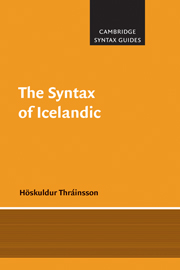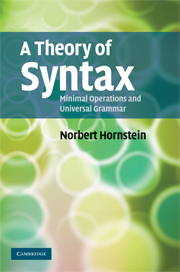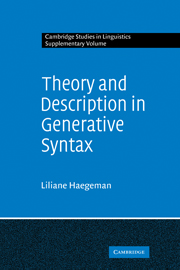The Syntax of Negation
In this new book Liliane Haegeman presents an account of sentential negation within a Government and Binding framework. Building on the work of Klima and Lasnik, Haegeman demonstrates the parallelism between negative sentences and interrogative sentences, and gives a unified analysis in terms of a well-formedness condition on syntactic representations: the AFFECT criterion, instantiated as the WH criterion in interrogative sentences and as the NEG criterion in negative sentences. It is shown that in the same way that in many languages the WH criterion gives rise to WH movement, the NEG criterion may also give rise to NEG movement. This book will be of interest to all those working on theoretical syntax, particularly of the Germanic and Romance languages.
- Haegeman very well known in UK, Europe and US for her previous Cambridge University Press book, but especially for her textbook on syntax, published by Blackwell
- First book-length treatment of negation within this theoretical model
Product details
January 2011Adobe eBook Reader
9780511885778
0 pages
0kg
This ISBN is for an eBook version which is distributed on our behalf by a third party.
Table of Contents
- Preface
- 1. Introduction
- 2. The WH-criterion and the NEG-criterion
- 3. NEG-movement and the NEG-criterion
- 4. The application of the NEG-criterion
- 5. A-positions and A'-positions and the syntax of negation
- 6. The syntax of negative operators
- Notes
- References
- Index.








